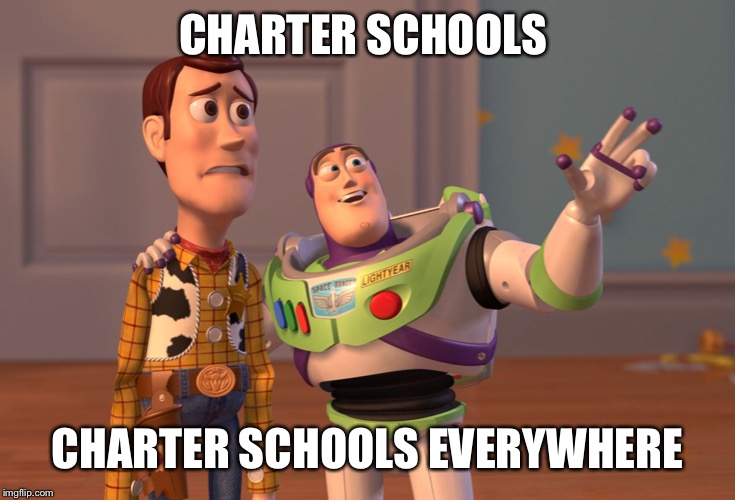Former Nashville School Board member Will Pinkston offers thoughts on plans to expand charter schools in Nashville. Pinkston is the founder of Public School Partners, a project that helps local school systems control the unabated growth of charter schools.
This holiday season has been hard on many Nashvillians in the wake of Metro government’s budget woes.
Affordable housing advocates are seeing funding cut for their initiatives. Criminal-justice reformers are being told they’ll have to wait longer than promised for the rollout of police body cameras to protect innocent citizens. Taxpayers are bracing for steep rate hikes to bail out the city’s bankrupt water and sewer system. And the list goes on.
Yet despite citywide fiscal austerity, Metro Nashville Public Schools officials are clinking champagne glasses in celebration of their latest plans to expand taxpayer-funded privately run charter schools.
During the past three months, MNPS Interim Director Adrienne Battle has quietly recommended that taxpayers fund an estimated $45.6 million in additional cash outlays for charter growth over the next five years. Battle not only pushed for a new charter school that will quickly grow to nearly 600 students, but unveiled plans to expand three existing charter schools.
Additional recommended charter growth is anticipated in the New Year — even though MNPS principals and teachers report that more charters are unneeded and unwanted, and siphon away resources from competitive teacher pay and adequate support in the classroom.
So what’s driving the MNPS agenda? Clearly, Battle does not understand the destabilizing effect that charters have on traditional public education — and she has no regard for the fiscal problems facing the rest of Metro government. Insisting on the costly privatization of public schools is a slap in the face to Mayor John Cooper, the Metro Council, and Metro employees who are tightening their belts while the school system writes blank checks for charters.
No doubt, the charter zealots will respond by flooding social media with myths. They’ll claim:
Myth #1: Charters are better than traditional schools. Fact: Charters cherry-pick in admissions to enroll students who are more likely to succeed, and then “counsel out” kids who don’t make the grade. Each spring, school board members are inundated with complaints about charters sending kids back to zoned schools prior to testing season. Not long ago, investigators found that California-based charter operator Rocketship — which Battle is recommending for a new school — failed to provide services to students with disabilities and forced homeless students to pay for uniforms.
Myth #2: Charters don’t cost more money. Fact: An independent analysis commissioned by the school board found that charter schools will, “with nearly 100% certainty,” have a negative fiscal impact on MNPS. Former Mayor Karl Dean pushed for a competing audit to refute the findings, but his auditors instead confirmed that when charter schools open, they suck funding out of traditional schools where costs such as staffing, maintenance and technology cannot be easily adjusted.
Myth #3: Charters are in high demand and families are entitled to school choice. Fact: Wait lists at most Nashville charters are minimal or non-existent. Meanwhile, in this environment of finite taxpayer resources, charter families are not more entitled to choice than working families are entitled to affordable housing. Charter families are not more important than citizens subjected to police brutality. Charter families’ wish lists should not be prioritized ahead of basic municipal needs, including clean water and reliable sewer services to homes and businesses.
Defeatists in the fight to protect public education will just shrug and say: “We have to do charters because state law says so.” The competing argument, of course, is simple: Stand up against hostile state laws. Nashville can learn from Memphis, where leaders are taking control of their school system after more than a decade of hostile, state-mandated charter intrusion.
Heading into 2019, MNPS went five consecutive years without approving a new charter school. Now, unfortunately, the school system is sliding backward and reigniting charter growth at a time when local taxpayers can ill-afford it.
RELATED:
On the Need to Slow Charter Growth

For more on education politics and policy in Tennessee, follow @TNEdReport
Your support — $5 or more today — makes publishing education news possible.